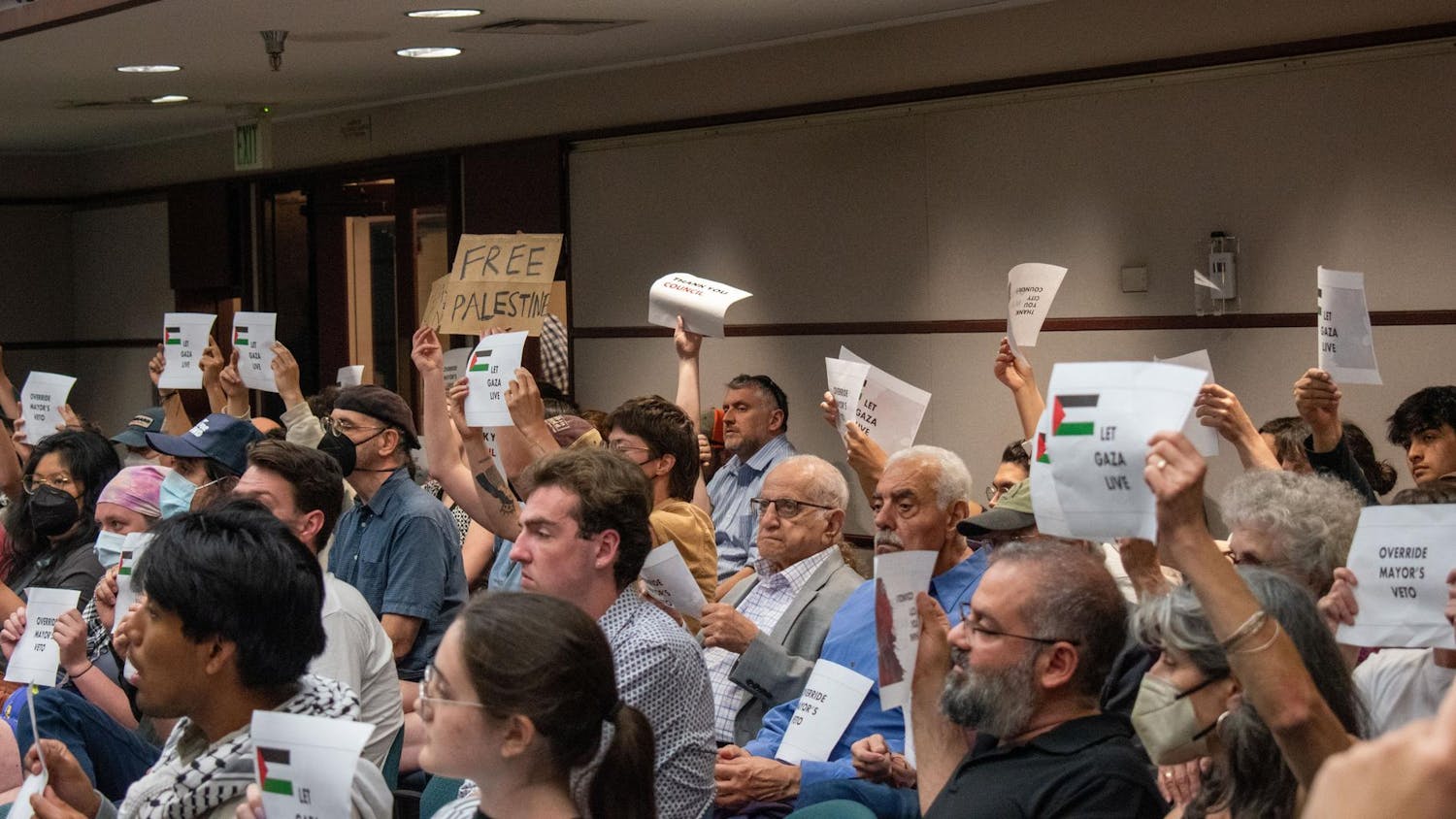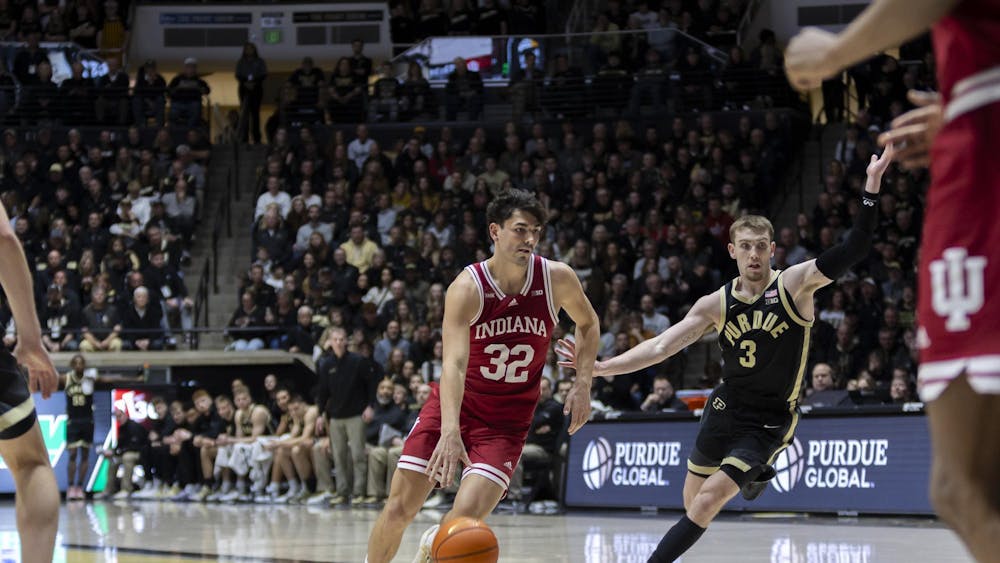By the time Father Dan Atkins took the pulpit for early Sunday mass, everyone knew. By that time, thousands had filled St. Peter's Square in Vatican City, emptied it and filled it again. By that time, there wasn't a television news network that hadn't reported it.\nThe papacy of Pope John Paul II, an ecumenical world force who presided over the Catholic Church for more than a quarter century, ended Saturday, as the ailing pontiff passed away in his Vatican apartment from heart and kidney failure. He was 84.\nHis legacy will be left to inevitable and healthy debate. His total impact on the church will only be seen after years of retrospect. But for Bloomington Catholics, his death prompted a weekend of mourning and prayer.\n"For students, Catholic or not, this is a very important event, considering this is the only pope they've ever known," said Atkins, priest at the St. Paul Catholic Center, 1413 E. 17th St. "He was such a friend to young people. His passing might hit many Catholic students very hard."\nA pope's impact on a young person can be crucial, Atkins said. He referred to Pope John XXIII as "my pope, the Holy Father during my adolescence and youth, and I really look at him with great tenderness." \nIn the death of the pope, Atkins drew a correlation to the loss of a grandparent who had been very significant in a Catholic student's life.\n"In those times," he said, "they feel, in some sense, lost or disoriented when there's an empty place at the head of the table."\nSenior Katie Polei saw John Paul II in Toronto at World Youth Day 2002, a 20-year-old concept created by John Paul as an attempt to reach out to the church's younger parishioners. She noted that the loss of the pope created both sadness and joy.\n"There's joy from the Christian belief that he is in the better place, and there's sadness in the death of a leader, like the death of a president," she explained.\nPolei called John Paul II a pope of "very strict rules, very conservative," but added, "Just to see him at World Youth Day, just to see how young people reacted, was to see how much love and joy they saw through him."\nFather Don Davison of St. Charles Borromeo Catholic Church, 2222 E. Third St., said John Paul II greatly expanded the influence of the papacy, both in the way he handled younger Catholics and how he understood the usefulness of the evolving mass media at the end of the 20th century. John Paul was a pope that understood the value of a picture, Davison said.\n"Where he grew up, in Nazi and communist Poland, what he had to contend with, he knew sometimes you only get one chance to say something," Davison said. \nUnder the Second Vatican Council of the 1960s, which convened to evaluate spiritual renewal and to reconsider the position of the church in the modern world, Davison said there was a strong push to embrace media relations and the impact of mass communication.\n"He took those documents very much to heart," Davison said. The result, he added, was near "rock star" status for the pope wherever he went.\nJohn Paul was the relatively unknown Karol Wojtyla, the cardinal of Poland, when he was elected pope Oct. 16, 1978. He was the first non-Italian pope in more than 450 years, and would spend the next 26 years -- the third longest tenure in the church's history -- as a strict doctrinal pope, traveling to more than 120 countries while speaking out against communism, abortion and homosexuality and speaking out in favor of peace, disarmament and human rights. \nPolei said she believes the values John Paul II professed will continue with the next pope. \n"Overall, I think you can see -- if you look at the cardinals and leaders that he's appointed -- it's going to continue in his legacy and his beliefs," Polei said. "Any time there's a different change in administration there's going to be changes, but there's a foundation there and there's a tradition."\nAtkins said he hopes the next pope will make steps toward embracing the diversity within the Catholic Church.\n"The next logical step, as I see it, would be to have a pope who's able to reclaim the great gift of diversity that's in the church," Atkins said. "There's been a push in the church toward uniformity -- and that's different from unity. We need not only an appreciation but a celebration of diversity."\nFor Davison, the type of pope the conclave of cardinals select in the next few weeks will be noteworthy.\n"There's a swing in the papacy between the 'historian popes,' that seek change, and the 'philosopher popes,' that don't feel the need to move with the times," Davison said. "Popes John XXIII and Paul VI were historians, for example, and John Paul II was a philosopher. It'll be interesting to see if the cardinals move for a historian or a philosopher, or for a caretaker in between."\nFor the lasting impression of John Paul II, who lies in state this week as funeral preparations begin, Atkins believes his ultimate legacy will be summed up by one word: solidarity.\n"I believe the great gift of John Paul's papacy has been the call to solidarity, both as a world and as a faith," Atkins said. "What the Holy Father showed all of us is that we can do great things with God's help if we just stand together. We gotta keep holding hands."\n-- Contact Senior Writer Tony Sams at ajsams@indiana.edu.
Journey ends for John Paul II
LOCAL: Bloomington priests reflect on pope's legacy, passing
Get stories like this in your inbox
Subscribe





